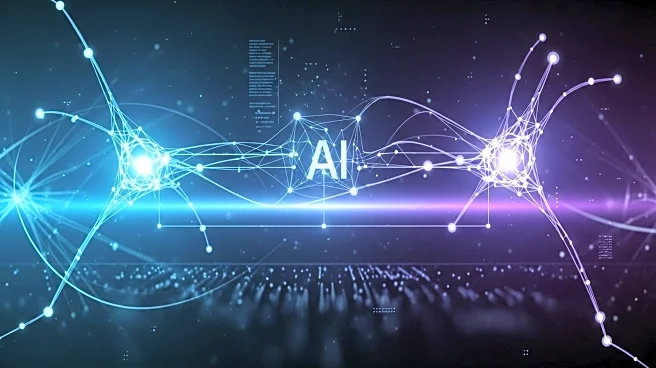What's Happening?
OpenAI is restructuring its Model Behavior team, a group responsible for shaping the personality of its AI models, including ChatGPT. The team, consisting of approximately 14 researchers, will now be integrated into the Post Training team, which focuses on improving AI models post-initial training. This move is aimed at bringing the work of the Model Behavior team closer to core model development, signaling the importance of AI personality in technological evolution. Joanne Jang, the founding leader of the Model Behavior team, is transitioning to lead a new project called OAI Labs, which will focus on developing new interfaces for human-AI collaboration.
Why It's Important?
The reorganization highlights OpenAI's commitment to refining the interaction between AI models and users, addressing issues such as sycophancy and political bias. This is crucial as AI models increasingly influence user experiences and decision-making processes. The changes could impact how AI models are perceived in terms of friendliness and reliability, affecting user trust and adoption rates. The initiative to develop new interfaces for AI collaboration may lead to innovative ways of integrating AI into everyday tasks, potentially transforming industries reliant on AI technology.
What's Next?
Joanne Jang's new project, OAI Labs, will explore novel interfaces for AI collaboration, moving beyond traditional chat paradigms. This could lead to advancements in how AI systems are used for thinking, making, and learning. OpenAI's continued focus on model personality may result in updates to existing models, aiming for a balance between user-friendly interactions and maintaining model integrity. Stakeholders, including tech developers and users, will likely monitor these developments closely, anticipating changes in AI application and functionality.
Beyond the Headlines
The restructuring may have ethical implications, particularly in how AI models handle sensitive topics and user interactions. As AI becomes more integrated into personal and professional environments, ensuring balanced and unbiased responses is critical. The development of new interfaces could also influence cultural perceptions of AI, shifting from viewing AI as mere tools to seeing them as collaborative partners.











